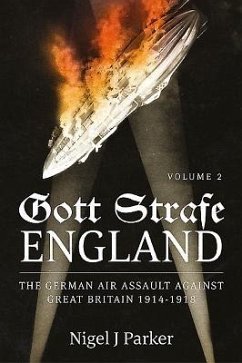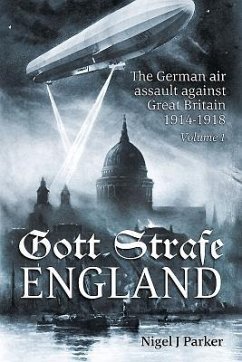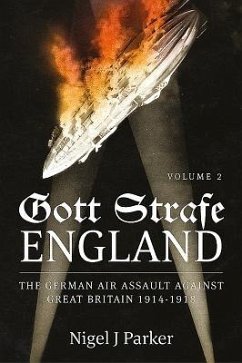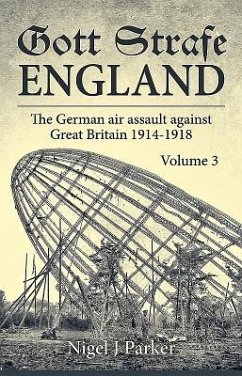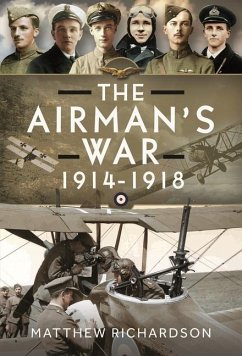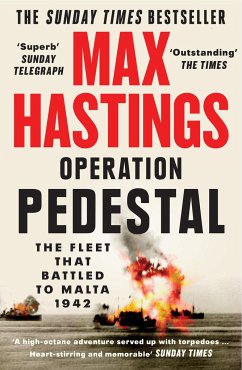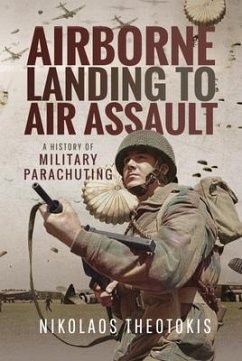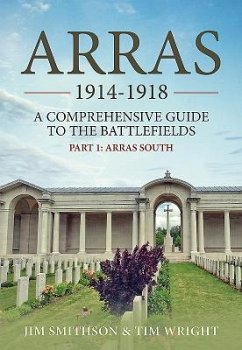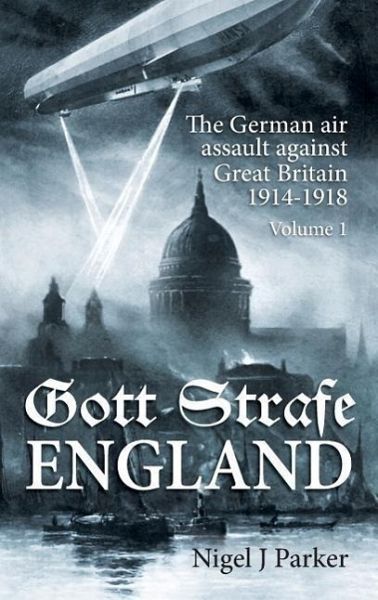
Gott Strafe England: The German Air Assault Against Great Britain 1914-1918
Volume 1
Versandkostenfrei!
Versandfertig in 2-4 Wochen
41,99 €
inkl. MwSt.
Weitere Ausgaben:

PAYBACK Punkte
21 °P sammeln!
"Gott Strafe England" is the definitive account detailing the German air attacks against Great Britain during the First World War. This method of attack was a totally new concept, taking the war away from the battlefield and into the previously safe territory of the enemy's homeland. As a result the concept of strategic bombing was born. This two-volume series will explore all the German air operations against the British Isles during 1914 to 1918, and assess the effectiveness of this new form of warfare. It will detail the routes taken by the raiders, where the bombs fell and the casualties i...
"Gott Strafe England" is the definitive account detailing the German air attacks against Great Britain during the First World War. This method of attack was a totally new concept, taking the war away from the battlefield and into the previously safe territory of the enemy's homeland. As a result the concept of strategic bombing was born. This two-volume series will explore all the German air operations against the British Isles during 1914 to 1918, and assess the effectiveness of this new form of warfare. It will detail the routes taken by the raiders, where the bombs fell and the casualties inflicted. Alongside this are details of the responses taken by the defenders to counter the attacks. Full details about the airships, aircraft and their crews that were brought down are examined. This evidence includes contemporary accounts by those involved, in the form of intelligence summaries and personal accounts which graphically impart the full drama and horror of the events. "Gott Strafe England" was conceived following the publication of the author's books on German Air Force losses over Great Britain during the Second World War, "Luftwaffe Crash Archive" (Red Kite 2013, volumes ongoing). This present volume completes the overall picture by including details of those airships and aircraft that were lost on operations over Great Britain during the First World War, as there has been no previous complete reference giving details of the fate of the machines and their crews. The great amount of information available regarding the air-raids, the airships and aircraft and losses involved has been used to produce a clear overview, using many primary sources available in the National Archives, Kew and thus adding invaluable evidence to accounts written in retrospect, which rely on sometimes unreliable anecdotal evidence. "Gott Strafe England", translated as "God Punish England", is an expression that often appeared in the German Press and was soon picked up by the British Tommy serving over in France and Belgium, so that everything unpleasant from Jerry, to the food, mud and the Sergeant-Major was 'Gott Strafed'. The evidence given in these volumes makes it clear that this title is indeed appropriate.
Dieser Artikel kann nur an eine deutsche Lieferadresse ausgeliefert werden.



